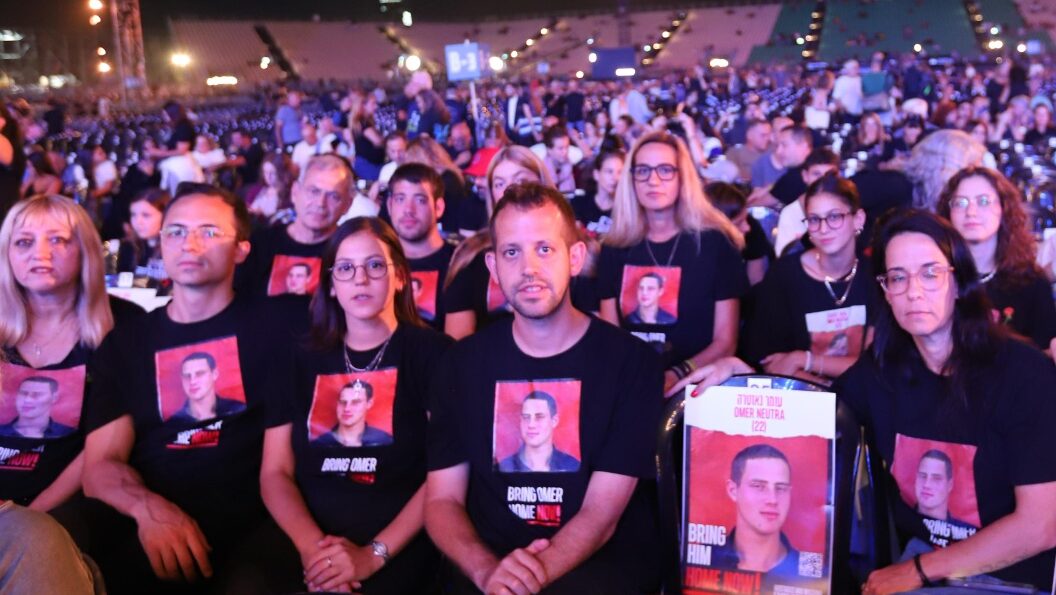Two years since October 7, Families Channel Grief Into Legacy
OneFamily Founder Chantal Belzberg explains that memorials ‘make us more grateful for the gift of life in Israel, and they help us understand the heavy price that was paid for it'
Eyal and Sharon Eshel are designing a new park in their community, Tsur Yitzhak.
The 4.5-dunam park will be called Roni’s Park, in memory of their daughter, Roni, who Hamas terrorists murdered on Oct. 7.
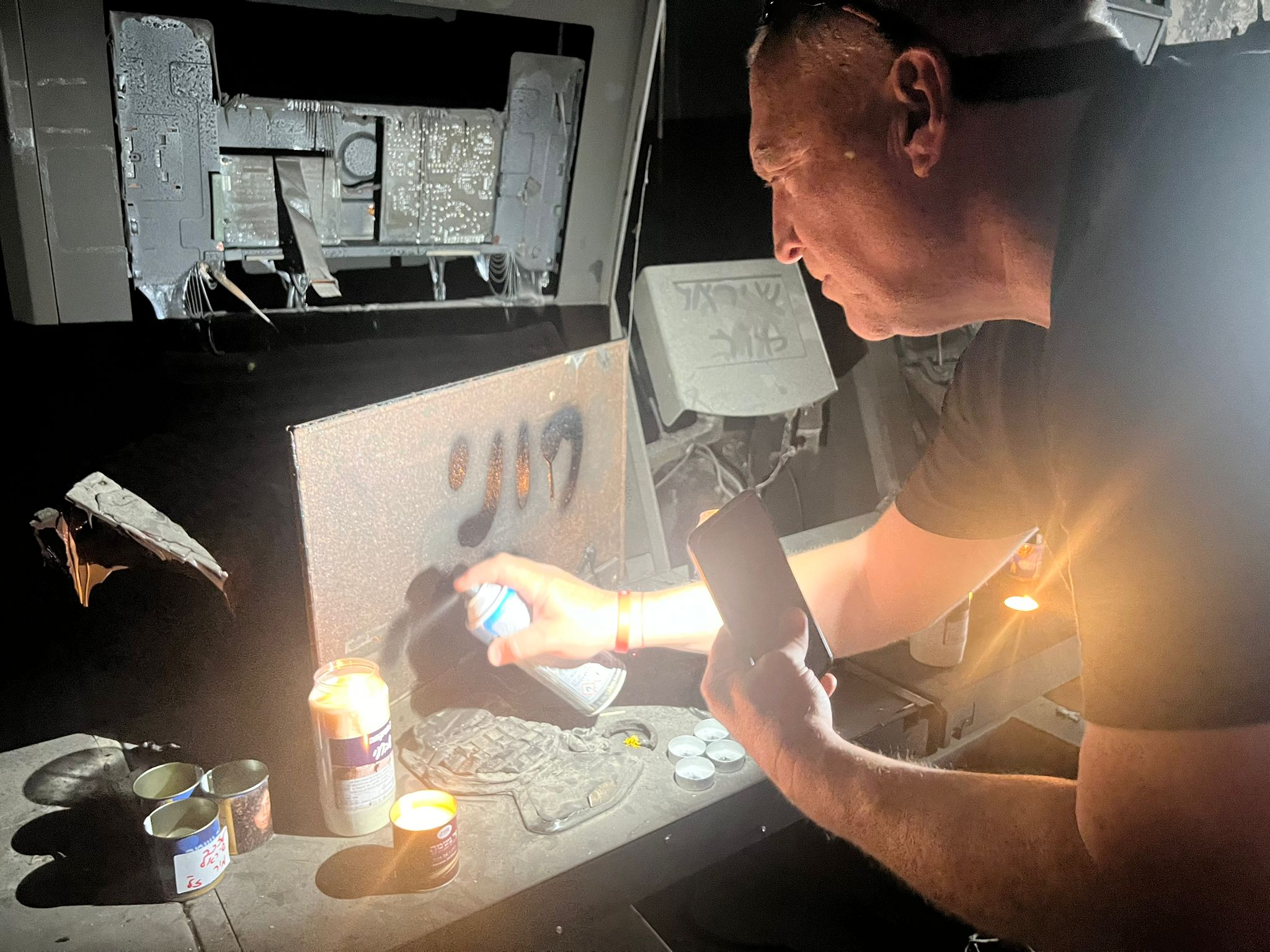
Eyal Eshel, father of fallen soldier Roni Eshel. (Maayan Hoffman)
“She so loved fruit and kids, and the whole park is being designed around youth coming to play and 120 fruit trees,” Eyal Eshel told The Media Line. “It is going to be a lovely place.”
Roni was killed when Hamas terrorists stormed the Nahal Oz base, where she was serving that morning. Around 60 soldiers were murdered in the attack, including 15 unarmed female field observers from IDF Unit 414 — most of whom, like Roni, were burned to death while hiding in their command center. Seven observers were kidnapped, and only four escaped the massacre.
A fundraising page for the park, which has already raised more than 1.7 million shekels, describes it as a space featuring a walking trail, wooden play treehouses, a community coffee cart, picnic areas and two communal herb gardens.
“More than just a park, this will be a living lesson in vitality, nature and the enduring cycle of life,” the page reads.
Eshel feels that Roni will live on through the park and that this is the joy and life she would have wanted to share with others. He looks forward to driving by — the park is only three minutes from his home — and seeing children laughing and people gathering there.
The park will bring a lot of smiles, just like Roni
“The park will bring a lot of smiles, just like Roni,” Eshel said.
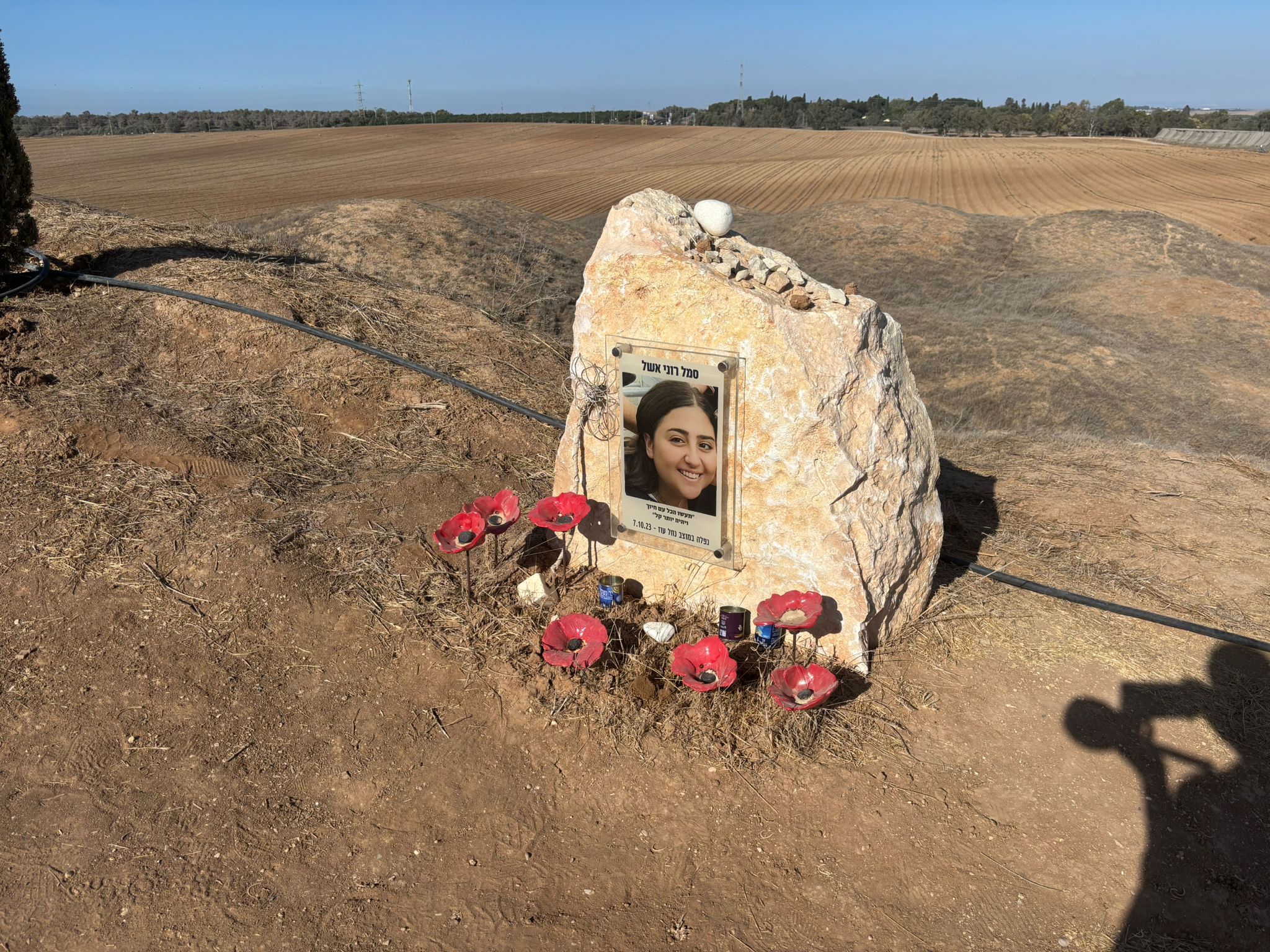
Roni Eshel’s memorial (Maayan Hoffman)
He noted that over the past two years, many families who lost loved ones have created unique memorials, each designed to reflect the essence of the person they commemorate.
“There have been so many because the state went through a tsunami, and everyone who could has responded,” he explained.
Give the gift of hope
We practice what we preach:
accurate, fearless journalism. But we can't do it alone.
- On the ground in Gaza, Syria, Israel, Egypt, Pakistan, and more
- Our program trained more than 100 journalists
- Calling out fake news and reporting real facts
- On the ground in Gaza, Syria, Israel, Egypt, Pakistan, and more
- Our program trained more than 100 journalists
- Calling out fake news and reporting real facts
Join us.
Support The Media Line. Save democracy.


But at some point, Eshel added, the memorials will stop. Those who had the emotional strength to build something in memory of their loved one will have done so, while others who lack that strength may never find it, and the opportunity could be lost.
But will a country covered in memorials make it harder for Israel to move forward from that tragic day in October?
Constant reminders of Oct. 7 can be painful, but as Chantal Belzberg, founder and CEO of OneFamily, told The Media Line, “It’s not the remembrance itself that keeps us stuck. It’s what we do with it.”
OneFamily has been assisting victims of Palestinian terrorist attacks since 2001. For the families, Belzberg said, these memorials mean everything.
“Each one wants, in whatever way they can, to make sure their loved one isn’t forgotten,” she said. “When a parent loses a child, one of their deepest fears is that when they’re gone, no one will remember their child anymore. Especially when so many were killed, every family feels a desperate need to make sure their son or daughter stands out — that people remember who they were, what they loved, how they lived.”
Memorials, she added, serve not only the families but the broader Israeli public.
When we see them, we’re reminded to be better people — to live with more kindness, to give more, to do more
“When we see them, we’re reminded to be better people — to live with more kindness, to give more, to do more,” she said. “They make us more grateful for the gift of life in Israel, and they help us understand the heavy price that was paid for it.”
Belzberg believes remembrance can be both grounding and uplifting.
“Remembrance can be heavy, but it can also lift us,” she said. “When it’s done with love and meaning, these places don’t keep us in the past; they help us move forward. They transform grief into purpose and memory into the strength to build a more compassionate, united Israel.”
That is precisely what the family of Nathanel Young hopes to achieve.
Nathanel was killed in action on Oct. 7 while defending the Yiftach base near Kibbutz Zikkim. In his honor, his family established the Make It Happen for Nathanel Fund, aimed at helping at-risk youth in Israel through sports, music and mental health programs.
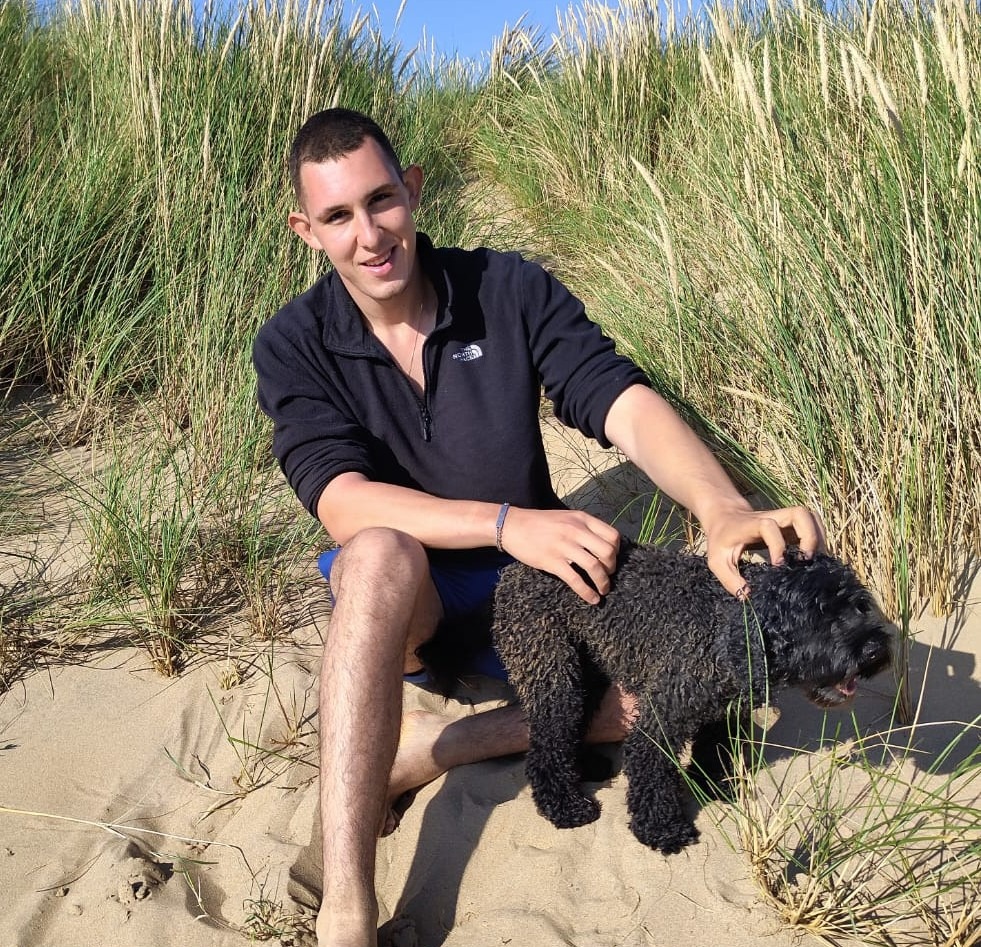
Nathaniel Young (Courtesy of the Young family)
“Nathanel lived by Michael Jordan’s words, which he had hung on his bedroom wall: ‘Some people want it to happen, some wish it would happen, others make it happen,’” his brother, Eliot Young, told The Media Line. “The fund is dedicated to helping youth at risk in Israel … giving them the tools and opportunities to ‘make it happen’ in their own lives, just as Nathanel did.”
The fund is dedicated to helping youth at risk in Israel … giving them the tools and opportunities to ‘make it happen’ in their own lives, just as Nathanel did
Young explained that the Young family wanted to ensure that Nathanel’s story didn’t end on Oct. 7.
“He was only 20 years old, with so many dreams ahead of him,” he said. “Our family felt strongly that we needed to channel our grief into something positive and active, something that reflects who Nathanel was.”
For the family, the fund has become both a mission and a source of healing, a way to continue doing something with Nathanel and for him.
The Youngs are a religious family, and Young said their approach is rooted in the Jewish concept of l’ilui nishmat, doing good deeds to elevate the soul of someone who has passed away. In Judaism, when a person inspires others to act righteously, even after death, it is as though they are performing the deed. Their soul continues to grow.
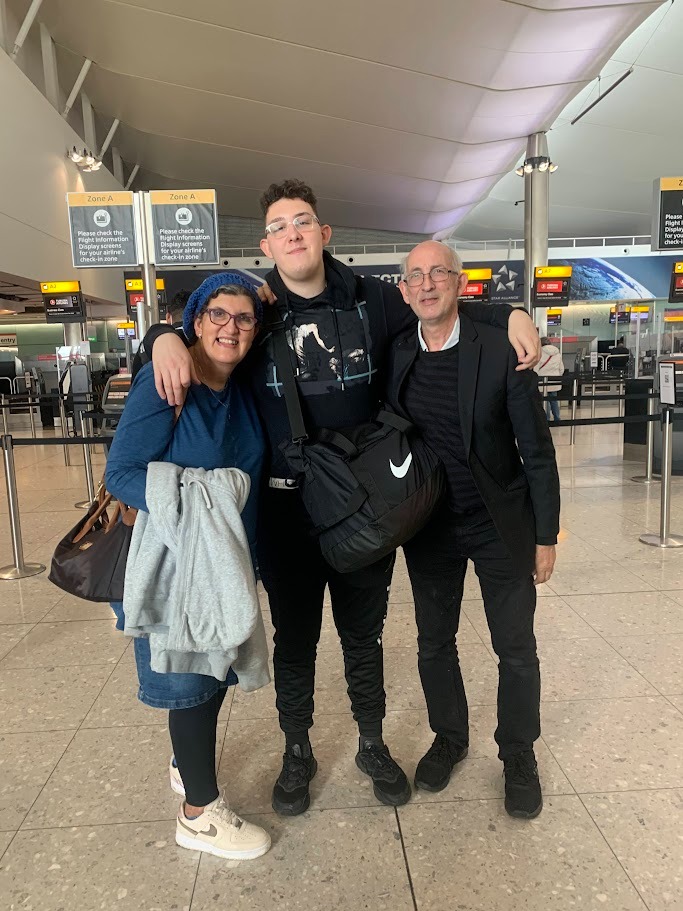
Nathanel Young and his parents (Courtesy of the family)
That belief has taken on special meaning after Oct. 7, when so many of those killed were so young. For soldiers like Nathanel, who never had children, initiatives like these ensure that their names and values live on, his brother said.
“A memorial allows others to connect with that person’s story and to be inspired by it,” Young said. “Each person we have lost represents a story, a dream and a set of values that will be carried forward. These memorials will weave together into a national memory that is both painful and powerful. They will remind us of the price we have paid, but also of the resilience, unity and strength of our people.”
